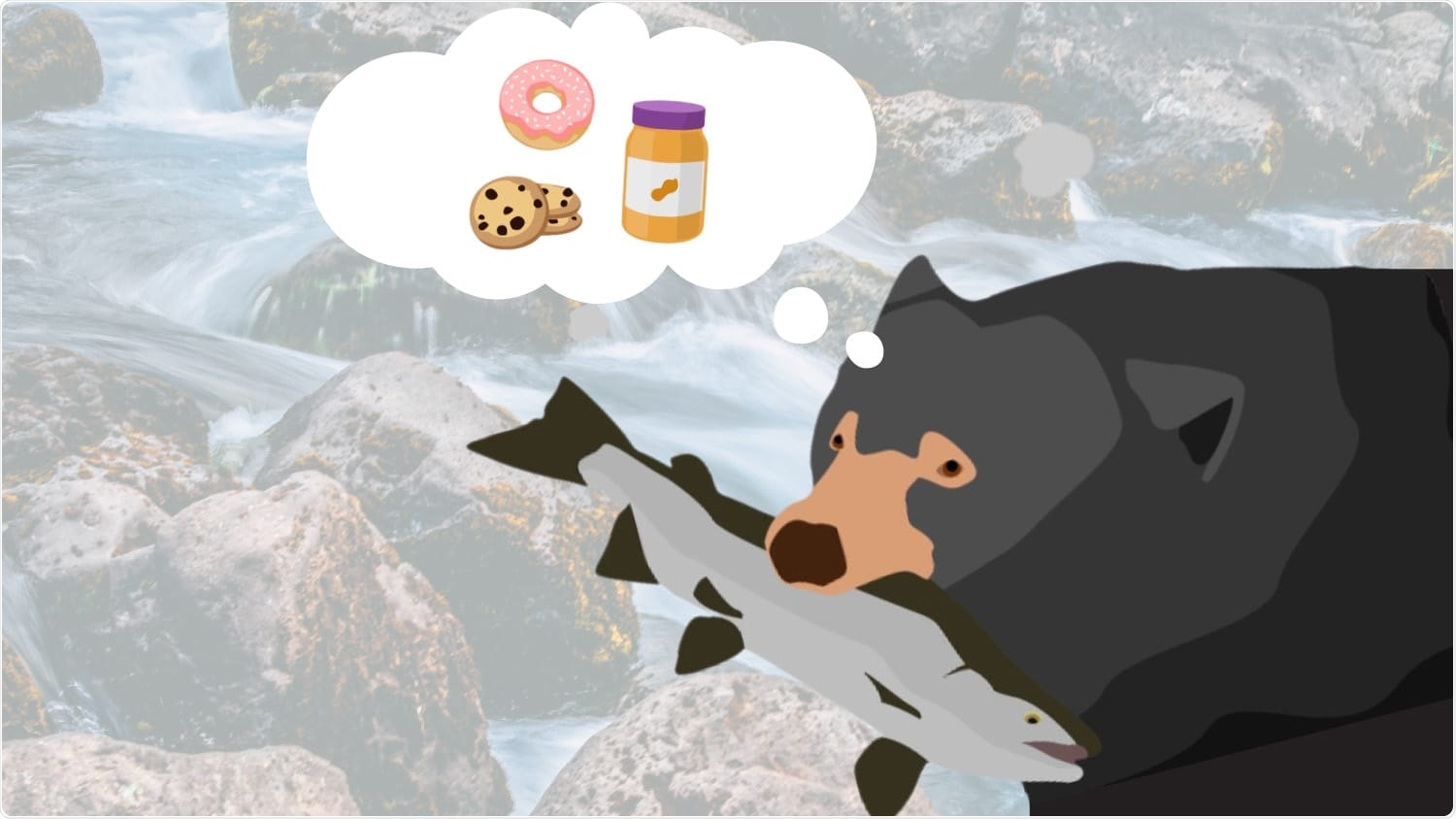According to a new study, eating human food has a significant impact on the microbiome of black bears. Researchers from North Carolina State University and Northern Michigan University discovered that wild bears that ate a lot of processed foods had significantly lower microbial diversity in their gut ecosystems.

Image Credit: Tom Gillman.
We know a ‘western’ diet can reduce microbial diversity in the guts of humans, mice, and other species, which can have an adverse effect on their health. We want to know if the same is true for wildlife, particularly given the increasing overlap between where people live and where wildlife lives.”
Erin McKenney, Study Co-Author and Assistant Professor, Applied Ecology, North Carolina State University
Erin McKenney adds, “One possibility our work here raises is that if wildlife begin consuming human foods, it may affect their ability to derive as much nutrition from their traditional, wild diet if they stop eating human foods.”
One step toward seeing if the same is true for wildlife is to assess the impact that human foods have on the gut microbiome of wild mammals. In this particular study, we wanted to know how human foods influence the gut microbiome of black bears.”
Sierra Gillman, Study First Author and PhD Student, University of Washington
Gillman performed the research while she was a graduate student at Northern Michigan University (NMU).
The study focused on Michigan, where hunters can “bait” bears by placing enormous amounts of human food, like candy and sugary cereals out. To attract bears to a specific area on a regular basis, hunters bait specific sites for weeks or months. As a result, some bears consume a diet high in human junk food for longer periods.
The researchers partnered with guides who led prearranged expeditions with hunters in Michigan’s Upper Peninsula to gather samples from the wild bear population. When the guides went on their regularly scheduled outings with hunters, they gathered samples from bears that were harvested.
The guides followed a specific strategy for collecting hair samples and two gut samples in particular. The gut samples were from the jejunum—the middle region of the small intestine—and the colon (also called the big intestine). In the end, the researchers were able to collect samples from 35 bears that had been legally harvested.
The researchers analyzed the stomach samples to determine the types of microorganisms found in each bear’s microbiome, as well as the number of each type of microorganism.
The researchers also used a carbon isotope analysis of the bear’s hair to determine the long-term diet of each animal. More particularly, the investigation revealed how much sugar and corn were consumed by each bear, which is more commonly found in processed diets.
The investigators looked at two indices of gut biodiversity while assessing the data. They began by calculating the number of different species present. Second, they looked at a metric called Faith’s phylogenetic diversity, which counts the number of different species present.
Sierra Gillman adds, “Basically, Faith’s phylogenetic diversity assesses how many branches of the bacterial family tree are represented. Essentially, we found that the more human food black bears eat, and the longer they eat it, the less diverse their gut microbiomes.”
As a result, for bears that ate more processed diets, both markers of gut biodiversity were much lower.
“Sugar is very easy to digest. Lots of bacteria can consume it. In practical terms, that means processed human foods actually have less food available for bacteria that specialize in breaking down fiber or other micro accessible carbohydrates,” McKenney says.
“Those bacterial specialists have trouble competing with the other bacteria for sugar, and their niche in the food web isn’t sustainable if bears don’t eat enough of their traditional diet. We think that’s one of the mechanisms for reducing gut microdiversity,” she adds.
McKenney states, “And if the gut biodiversity suffers when bears begin consuming more human food, that raises the possibility that it would be more difficult for bears to derive as much nutritional value from non-human foods if they return to a ‘wild’ diet. Basically, it’s not clear how quickly microbial species that break down fiber, etc., would return.”
“Now that we’ve identified this association between eating human food and microbial biodiversity, we need to do additional work to determine what this means for the health of these animals—and potentially other animals,” Gillman adds.
Many hunters use camera traps to monitor their bait sites, and people we’ve worked with have told us that they see a wide variety of species—raccoons, fishers, martens, deer, hares—eating the bear bait.”
Diana Lafferty, Study Co-Author and Assistant Professor, Wildlife Ecology, Northern Michigan University
“It’s not clear how baiting might be affecting the microbiomes or health of other wildlife that is taking advantage of the free food. As we think about conservation, assessing the impact of our activities on diversity may need to extend to protecting microbial diversity. Because the evidence increasingly suggests that many of these microbial organisms are critical to the health of wildlife species. How does baiting fit into that? Those are issues I think we’ll need to explore,” she adds.
Source:
Journal reference:
Gillman, S. J., et al. (2021) Human-provisioned foods reduce gut microbiome diversity in American black bears (Ursus americanus). Journal of Mammalogy. doi.org/10.1093/jmammal/gyab154.